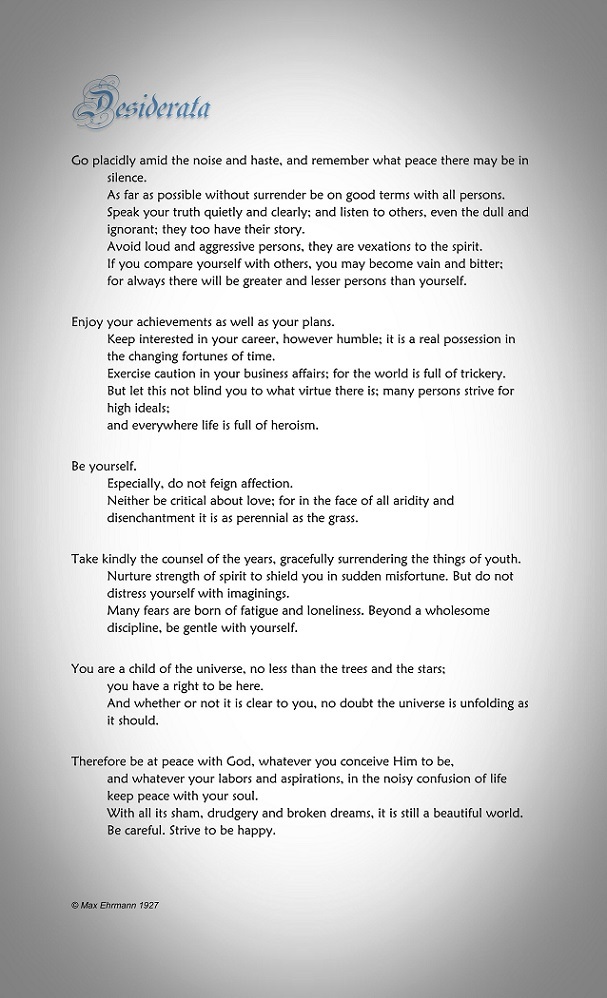They too have their story – lesson from Desiderata, the poem
They too have their story – lesson from Desiderata, the poem
By Samuel N.
Political discussions in countries ruled by dictatorial governments are marked by arrogance and noisiness—persons the poem Desiderata advises us to “Avoid” in its first stanza. Such arrogance is even extreme when the government is a totalitarian one.
In Eritrea, where I am from, we have a saying which I translate as “It is better they do evil deeds to you, than they imprint on you to do evil” (ካብ ክፉእ ዝገብሩኻስ ክፉእ ዝምህሩኻ).
Sadly the legacy of oppressive governments is not only in the deeds they do to their citizens but the evil they imprint on the political culture of the country. Many African countries, and my country in particular, are case in point.
The arrogance, the intolerance and noisiness of the government is mirrored in those change-seeking groups (all in exile or in Eritrean prisons, by the way). Once learned, it is difficult to un-learn something (and we all thought learning was hard).
The damage of such a political culture becomes more painful when you see such arrogance become the cause of weakening whatever few pro-justice or pro-human rights groups these countries have; there by prolonging the life of the evil oppressors.
Before advising that we avoid loud and aggressive persons (vexations to the spirit, indeed!), the poem advises us to listen to others, and even to the dull and ignorant (I am thinking government sympathizers); they too have their story.
This timeless piece by Max Ehrmann has a lot to teach us. May God give us the wisdom and the strength to un-learn the evils and to speak our truth quietly and clearly.
Below is Desiderata in English and Tigrigna:




![[AIM] Asmarino Independent Media](/images/logo/ailogo.png)